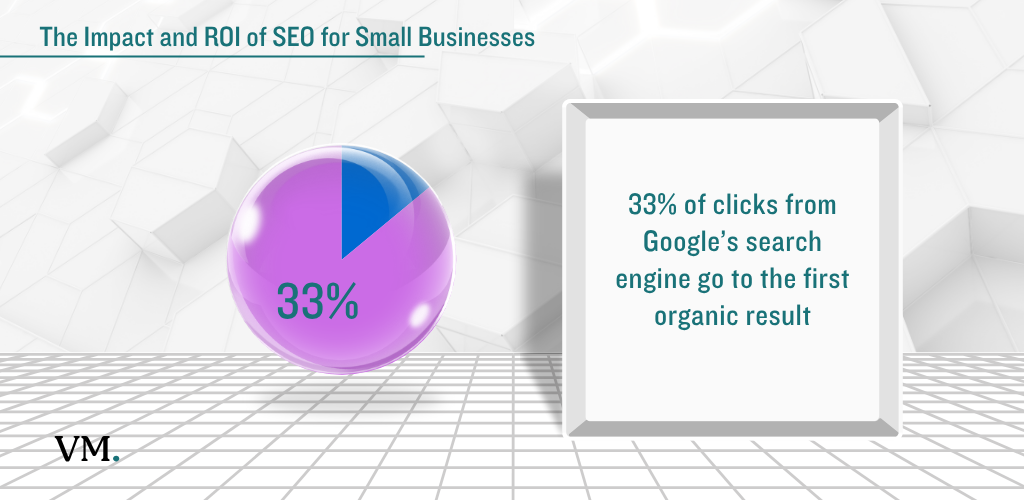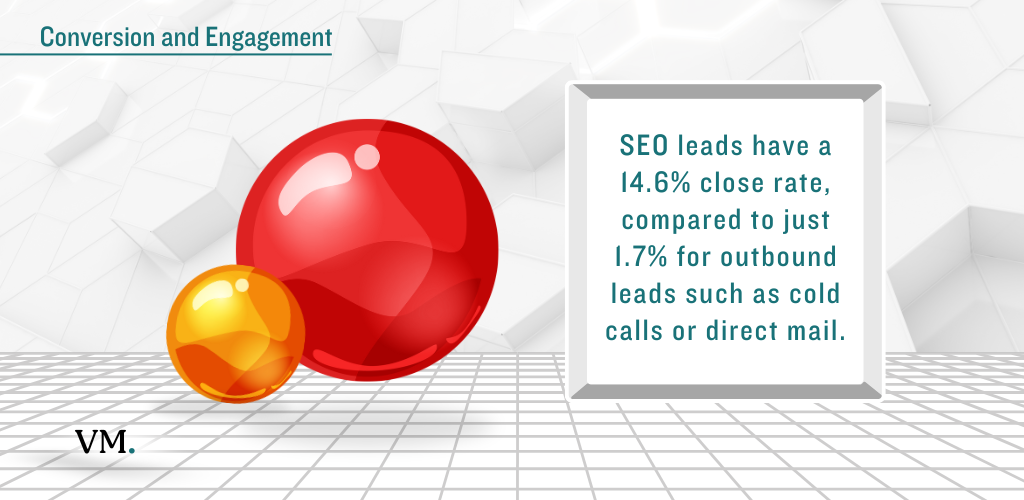For many small business owners, the idea of really dealing with SEO can feel overwhelming.
Where do you even begin with limited time and resources? The truth is, harnessing the best SEO tools for small business doesn’t have to be expensive or difficult.
In this guide, we’ll explore the essential strategies and the best SEO tools for small business to boost your online presence and get more customers.
Understanding the Basics: Why SEO Matters
Imagine you’re a customer searching online for a product or service. You’re most likely to click on the first few results that appear on Google, right? That’s where SEO comes in.
Search engine optimization (SEO) is about improving your website’s visibility in search engine results pages (SERPs), which helps to drive more organic traffic and potential customers to your business.
7 Best SEO Tools for Small Businesses
Before diving into paid options, mastering free SEO tools is crucial. These free tools offer valuable insights and can even handle many of your SEO needs effectively.
Google Analytics, for example, provides a treasure trove of information about your website visitors—their behavior, demographics, and the channels they use to find you. Analyzing this data helps you understand your audience better, tailor your website content, and optimize your website for conversions.
But knowing who visits your website is only one part of the equation. You also need to understand how they’re finding you, and that’s where Google Search Console comes in. The Google Search Console offers a behind-the-scenes look at your website’s performance on Google Search.
Use the Google Search Console to monitor your search traffic, identify and fix technical issues, track keyword rankings, and submit your latest content for indexing. This dynamic duo—Analytics and Search Console—acts as your eyes and ears on the internet.
| Tool | Key Features | Ideal For |
|---|---|---|
| Google Analytics | Tracking website traffic, user behavior, and demographics | Understanding your audience and optimizing for conversions |
| Google Search Console | Tracking local search performance, identifying technical issues, and submitting sitemaps | Improving search visibility and fixing technical SEO problems |
On-Page SEO: Making Your Website Search-Engine Friendly
Think of your website as a storefront; it needs to be inviting, well-organized, and clearly display what you offer. On-Page SEO ensures search engines can easily understand and rank your website’s content.
This means using relevant keywords naturally in your content, writing compelling meta descriptions that entice clicks, and structuring your website with clear headings and subheadings. A strong on-page strategy acts as a roadmap, guiding visitors and search engine bots through your website with ease.
And if you’re a local business, don’t underestimate the power of local SEO. Creating a Google Business Profile, listing your business on local directories, and embedding a Google Map on your website can significantly increase your chances of appearing in local search results. This is crucial for brick-and-mortar businesses relying on local foot traffic.
Off-Page SEO: Building Authority and Trust
While on-page SEO focuses on your website’s content, off-page SEO revolves around building your website’s authority and reputation beyond your domain. Imagine other reputable websites linking back to yours. This signals to search engines that your content is valuable and trustworthy.
Guest blogging, participating in industry forums, and engaging with your audience on social media platforms are excellent ways to cultivate these valuable backlinks and strengthen your off-page SEO efforts. This strategy is like word-of-mouth marketing in the digital age, helping solidify your presence in the industry.
Leveling Up: Paid SEO Tools Worth the Investment
Free tools provide a solid foundation, but consider investing in premium SEO tools when your budget allows. These advanced options often come with more robust features and data analysis capabilities, streamlining your SEO workflow and giving you a competitive edge.
Tools like Moz, Ahrefs, and SEMRush offer competitor analysis, allowing you to study your competition, identify keyword gaps, and refine your strategy accordingly. Other valuable features include in-depth keyword research, backlink analysis, rank tracking, and comprehensive site audits. These features can significantly impact your online visibility, allowing for more strategic and data-driven decision-making.
Statistics
The Impact and ROI of SEO for Small Businesses
SEO is not just a technical necessity—it’s a proven growth driver for small businesses. The following statistics illustrate why investing in SEO, even with limited resources, can yield substantial returns and help small businesses compete effectively in the digital marketplace.

Key SEO Statistics for Small Businesses
Visibility and Traffic
33% of clicks from Google’s search engine go to the first organic result, underscoring the importance of ranking highly in search results.
93% of online experiences begin with a search engine, making SEO the foundation of online discovery for most consumers2.
66% of small businesses say SEO drives more website traffic than social media.
Return on Investment (ROI)
Small businesses see an average of $5.20 in revenue for every $1 spent on SEO.
70% of small businesses using SEO report a 30% increase in revenue within the first year1.
Businesses save an average of 61% on cost-per-lead by focusing on SEO, compared to other marketing channels.
Conversion and Engagement
SEO leads have a 14.6% close rate, compared to just 1.7% for outbound leads such as cold calls or direct mail.
90% of small businesses with active SEO report higher customer engagement1.
The average SEO conversion rate for small businesses is around 2.4%, but with local SEO, that rate can jump to an impressive 72%.
Local SEO Power
76% of small businesses increased ROI by focusing on local SEO.
72% of consumers who perform a local search visit a store within five miles.
80% of mobile local searches lead to a purchase1.
Local searches result in a purchase 28% of the time.
Websites optimized for local SEO have a 58% higher chance of appearing in Google’s Local Pack.
Local SEO increases foot traffic for 72% of small business owners.
Competitive Advantage
86% of small businesses believe SEO helps them compete with larger enterprises1.
50% of small businesses rank SEO as the top strategy for growth.
Brand Awareness and Trust
64% of small businesses that invest in SEO see increased brand awareness.
88% of customers read online reviews, which impacts both SEO and ROI.
Real-World Results
A clinic using SEO tools saw a 74% boost in website visits and an 83% increase in phone calls.
An electrical company secured 14 times more top 1 rankings in their area in just 17 days by leveraging modern SEO tools and strategies.

How Small Businesses Measure SEO Success
Small businesses typically track the following metrics to gauge SEO effectiveness:
Quantity and quality of backlinks (21%).
Site traffic (19%).
Leads and conversions (19%).
Keyword rankings (18%)
Navigating the World of SEO Tools as a Small Business Owner
When exploring the vast selection of SEO software available, prioritize understanding Google’s guidelines. Familiarizing yourself with how Google Search works, its best practices for SEO, and potential pitfalls (like black hat techniques) can safeguard your website from penalties and ensure long-term success.
My Summary
Building a successful online presence requires understanding the constantly evolving SEO landscape. While exploring premium SEO tools is an important step, your journey to higher rankings begins by mastering free SEO tools. They lay the foundation for optimizing your content and improving search engine visibility.
Implementing best practices consistently ensures your business can compete effectively, even against larger competitors. By using both free and paid SEO tools strategically and adapting your approach based on the latest trends and your specific goals, you can watch your business rise to the top of the rankings and enjoy the rewards that come with it.
FAQs about Best SEO Tools for Small Business
What Is The Most Effective Tool for SEO?
Does SEO Really Work for Small Businesses?
SEO levels the playing field. By using SEO strategies and tools, smaller operations can snag high rankings on Google, even next to big brands.
This means better visibility and more customers finding you online.
How Do I Do SEO for a Small Business Website?
Think of SEO as an ongoing project rather than a one-time fix. It involves building a great website with tailored content using the right keywords.
Make your website mobile-friendly. Share your site and get listed on business sites to improve local SEO. Don’t forget to track your site’s progress—that’s where tools like Google Analytics come in handy.
Which Is the Best Free SEO Tool for Beginners?
New to SEO services?
Google Search Console (GSC) is a great, free place to start. It lets you submit your site directly to Google, keeps an eye on how it’s performing, and sends alerts if any problems pop up.
Share:




